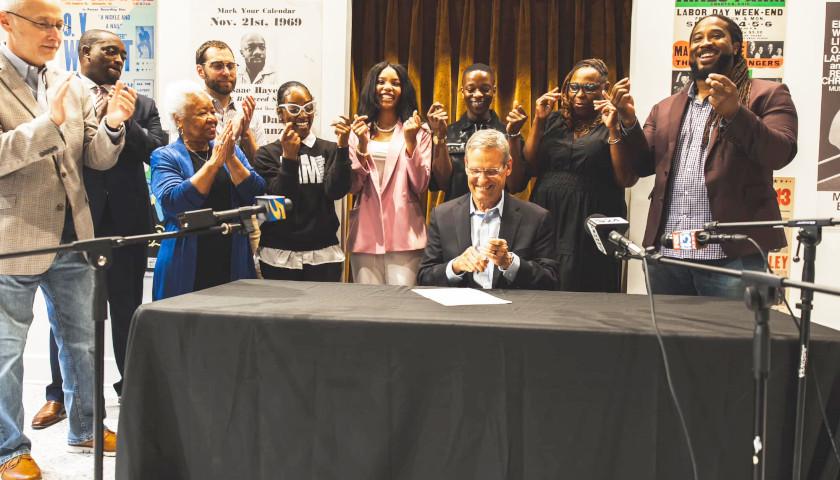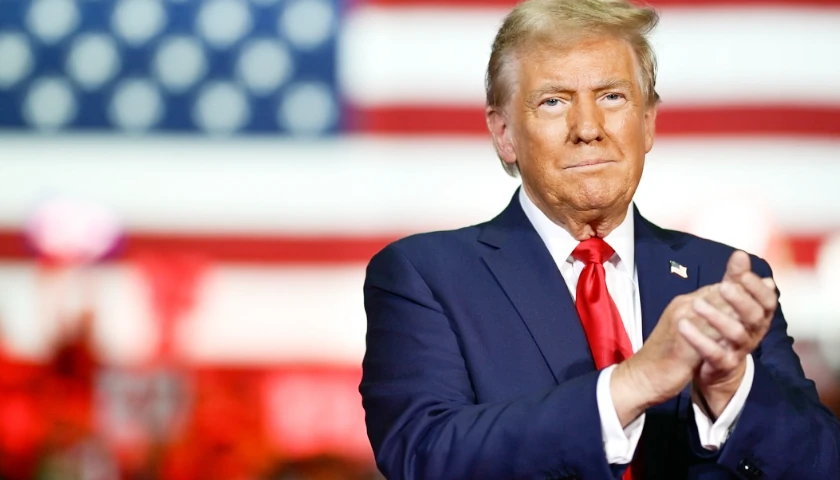The Ensuring Likeness Voice and Image Security (ELVIS) Act, which passed the Tennessee General Assembly and signed by Governor Bill Lee in March, is set to take effect on July 1.
As artificial intelligence (AI) has become more accessible to the general public, personalized generative AI cloning models and services have been used to enable human impersonation.
This allows users to create unauthorized fake works in the image and voice of others, and in some cases, the technology is exploited for fraudulent purposes.
This week, we’re celebrating the ELVIS Act from Bristol to Beale Street & beyond. 🪕
TN’s rich musical heritage is unrivaled, & we’re proud to make history as the first state to protect artists against emerging AI technology.
📍: Bristol’s Birthplace of Country Music Museum pic.twitter.com/pb1jZRRo7O
— Gov. Bill Lee (@GovBillLee) May 6, 2024
The ELVIS Act, once it takes effect, will mark the first of its kind in the entire nation that protects artists and songwriters from AI by adding “voice” to the current Tennessee law that protects the name, image, and likeness rights of the state’s musicians.
Lee called on the General Assembly to pass the ELVIS Act during his State of the State Address in February, explaining that the exploitation of AI to impersonate or create deep fake scams of artists “threatens the future of Tennessee’s creators, the jobs that they support across the state and country, and the bonds between fans and their favorite bands.”
“We hope that The ELVIS Act will serve as a blueprint for states across the country. It’s only right we lead the nation in this effort; Tennessee is the music capital of the world and we intend to keep it that way,” Lee said at the time.
Leading up to the ELVIS Act taking effect, Lee has traveled across the state to visit places like the Birthplace of Country Music Museum in Bristol, the Stax Museum in Memphis, and the Tina Turner Museum in Brownsville to celebrate the bill.
“[Tennessee’s] rich musical heritage is unrivaled, and we’re proud to make history as the first state to protect artists against emerging AI technology,” Lee said.
As of January, according to the governor’s office, the music industry employs 61,617 Tennesseans and contributes $5.8 billion to the state’s GDP. Tennessee is also home to 4,500 music venues.
The Volunteer State’s music industry has also seen a 21 percent growth over the last five years, Lee’s office added.
– – –
Kaitlin Housler is a reporter at The Tennessee Star and The Star News Network. Follow Kaitlin on X / Twitter.
Photo “Bill Lee” by Bill Lee.






“protects artists and songwriters from AI by adding “voice” ”
This law does nothing for SONGWRITERS, unless they happen to be singers. One would think that in a State that has such rich musical heritage this would be more widely known and understood. Songwriters are the foundation for the music, yet gain the smallest portion of any royalties. It has gotten worse since streaming. Honestly, unless you are in the right clique, songwriting pays less than any gig economy job.